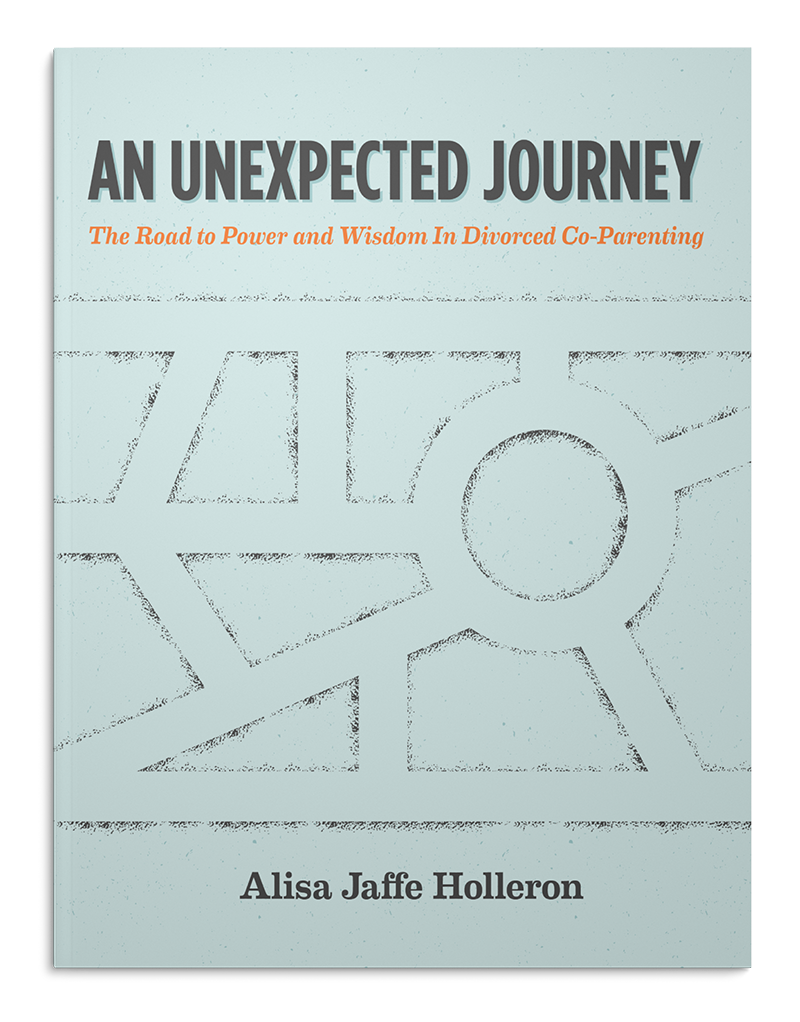Anger is present in all difficult divorced co-parenting situations. It can be the driving force that keeps people stuck in distress and unhappiness. Even though anger is intense and challenging, it does not have to control us. Learn some basic things about it operates and how to work with it.
- We don’t ask for anger, it just comes! Something happens, a trigger and WHOOSH! It comes in! We don’t will it to come. Really, who would will a difficult emotion like that come in? We don’t will it to come, but if we don’t learn how to work with it once it comes, it can get us in big trouble.
- Pay attention to your anger. Anger is a signal that an injustice has occurred. Think of anger as a guardian inside of you that is trying to protect you. Don’t try to push it away as that will only make it louder and stronger. Let yourself feel the injustice and the anger that comes along with it. You can let yourself feel it, without immediately acting on it.
- Differentiate between ANGER and the REACTION. Unfortunately, we have habitual ways of reacting when we get angry. The anger comes in, and then BOOM we react, often without thinking. Unfortunately, the action we take when we habitually act out of anger not only doesn’t help, but often makes things worse. Learning to separate out the anger from the reaction is an important part of developing wisdom and being effective.
- Anger can lead to circular and repetitive thinking. That is, we go over and over in our minds, or out loud what we’re angry about. We can get stuck in trying to figure out how to solve whatever it is that is making us angry. This takes a great deal (most or all!) of our attention, and a lot of energy. Unfortunately, when we are angry and caught in habitual reactions, we are often focused on trying to change something that we cannot change (such as our co-parent!) When we aren’t able to change it, it leads to more anger and a circular and repetitive loop.
- Anger takes our attention away from our children. We can’t be caught in anger and be paying attention to our children at the same time. No matter how legitimate our anger is, and even if our anger is related to protecting our children, if we stay stuck in it we are hurting them. Psychologists have learned that in order to develop in a healthy way, children need us to be attuned to them. That is they need us to be connected to their experience. We cannot do this is we are caught in anger.
- When we stay stuck in anger, we are working against our own best interests and our own deepest desires. How could that be? All parents want their children to be happy and well-adjusted, and all parents want to be in good connected relationship with their children. Difficult co-parenting situations can propel us into anger, and if we stay there we are not being attuned to our children. If we are not attuned to our children, we are eroding our relationship with them. We are also not giving them what they need emotionally and psychologically.
- You can’t “think” anger away. Emotions and rationality live on different planets and speak different languages. When you are trying to talk yourself out of being angry using rationality, you are wasting your time. Emotions don’t respond to rationality. That’s why it’s so hard when you’re upset and someone tells you to calm down. If you think of your anger as that guardian that is trying to protect you, that guardian will not like to be told to shut up because that guardian knows something wrong. If you can’t think your way out of anger, what can you do?
- Use mindfulness! Mindfulness is a skill that can help us get out of anger. Mindfulness creates awareness of the anger, and enables us to work with it. Mindfulness helps us recognize the anger, but helps us not react habitually. It creates a space between the anger and the action that we take. It helps us to not get caught in a repetitive cycle. It helps us get grounded, and gives us the ability to think clearly about what action to take. Mindfulness is simple. It involves creating awareness by bringing our attention to our breath and noticing the things that are going on inside of us, such as thoughts and feelings. (See my blogpost about Mindfulness).
- Accepting that your co-parent isn’t going to change will help with anger. The thing that keeps us hooked into anger is thinking that we can actually do something to make the situation change. In co-parenting the something we usually want to change is our co-parent! Unfortunately, people don’t change because we angrily tell them they should. People change because they decide to change, and we have no control over that. Learning to be clear about how our co-parents are, and giving up on trying to change what we can’t change will disengage us from the repetitive loop that gets us nowhere. That doesn’t mean that we accept EVERYTHING. It simply means that we get grounded, realize what we can and can’t change, and put our energy toward what actually might be productive.
- Children learn about anger from us. We can’t expect our children to know how to work their way out of anger if we don’t know. It is not uncommon for parents to tell their children not to be angry. If only it were that easy! We know from our own experience how powerful and difficult anger can be to work with. We don’t ask for it and we can’t will it away. So why do we think our children can? When we learn to work with our own anger, we are role modeling for our children how to do it, and also enables us to coach them through anger in a realistic, effective way.



